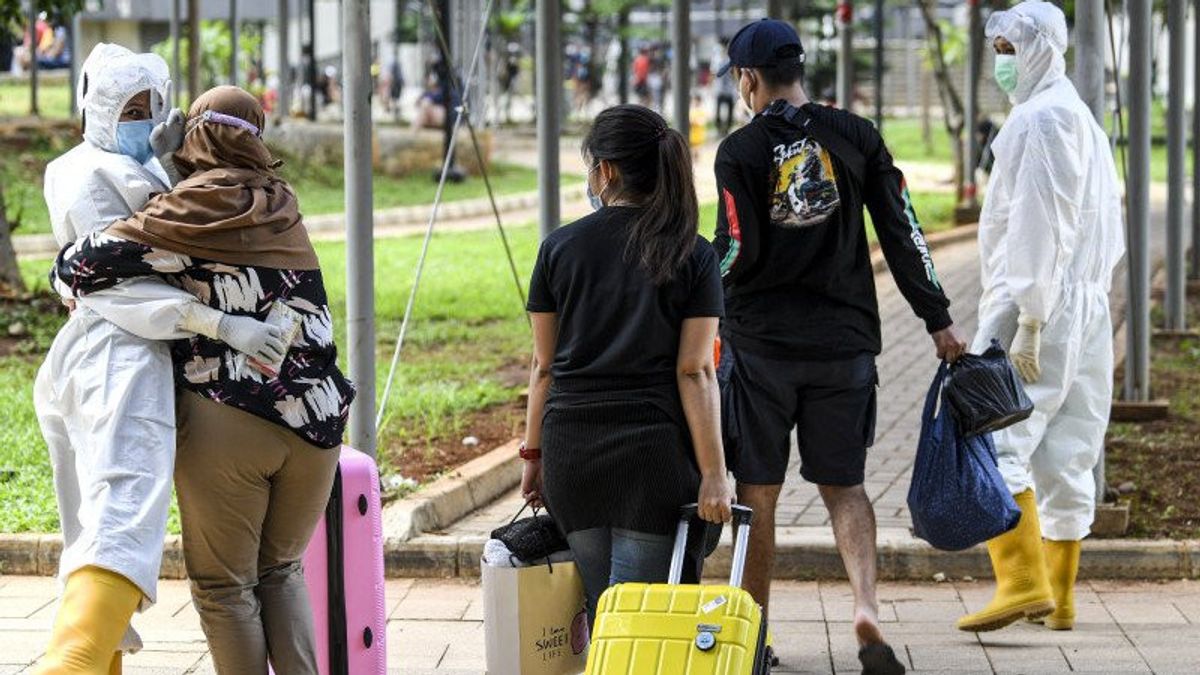JAKARTA - A few weeks ago, South Africa became the focus of world anxiety after the Omicron variant was considered the source of the skyrocketing number of COVID-19 cases due to its highly contagious nature.
But with a new variant now widespread around the world, South Africa is providing clues to life after the Omicron.
South African President Cyril Ramaphosa said the fourth wave of COVID-19 in his country had reached a peak. According to him, the total number of deaths attributed to Omicron is around 10,000, which is lower than the second Delta wave, which killed 110,000 people.
"Although three-quarters of South Africa's population still has not received the vaccine, it was found that immunity after previous infection made Omicron a less severe disease even though it had put pressure on hospitals," he said as quoted by the global media Financial Times, quoted on Sunday, January 9.
In the Gauteng region, which is the economic center of South Africa, the Omicron outbreak has passed its peak. Likewise with the death rate. The good news is that the mortality rate is well below the previous wave.
"The incredible speed of this wave still surprises me," said François Venter, an expert on HIV and infectious diseases at the University of Wits Johannesburg.
"This is a wave in which everyone I know has been infected," he continued.
The Financial Times journal revealed that South Africa has a high level of immunity compared to other countries. One recent study estimated that there were antibodies in about three-quarters of blood samples taken in Gauteng when Omicron attacked.
Hospital admissions on the Omicron wave are about two-thirds of the Delta peak. During the Delta wave, almost all of the positive patients in the hospital developed acute respiratory problems. This time about a third.
While cases in mothers who want to give birth are often very serious in the previous wave because of possible complications. In fact, in December 2021 in one of the hospitals, out of 14 births that day, 13 patients tested positive, and all of them were asymptomatic.
Meanwhile, the quarantine time for patients staying in hospital was around three days during Omicron, compared to about seven days in the other batches. It also shows the value of early warning so doctors can prepare.
"The rate of severe and lethal cases with Omicron is much lower than during the Delta wave," the Financial Times report said.
The infectious nature of Omicron may have different implications for hospitals in countries with older populations and without high rates of past infection.
South Africa also points out that Omicron waves may not fade as quickly as they appeared. The proportion of tests that come back positive is now well below the 40 percent peak in some areas. But in Gauteng, the positive test rate has just fallen below 20 percent.
The English, Chinese, Japanese, Arabic, and French versions are automatically generated by the AI. So there may still be inaccuracies in translating, please always see Indonesian as our main language. (system supported by DigitalSiber.id)












